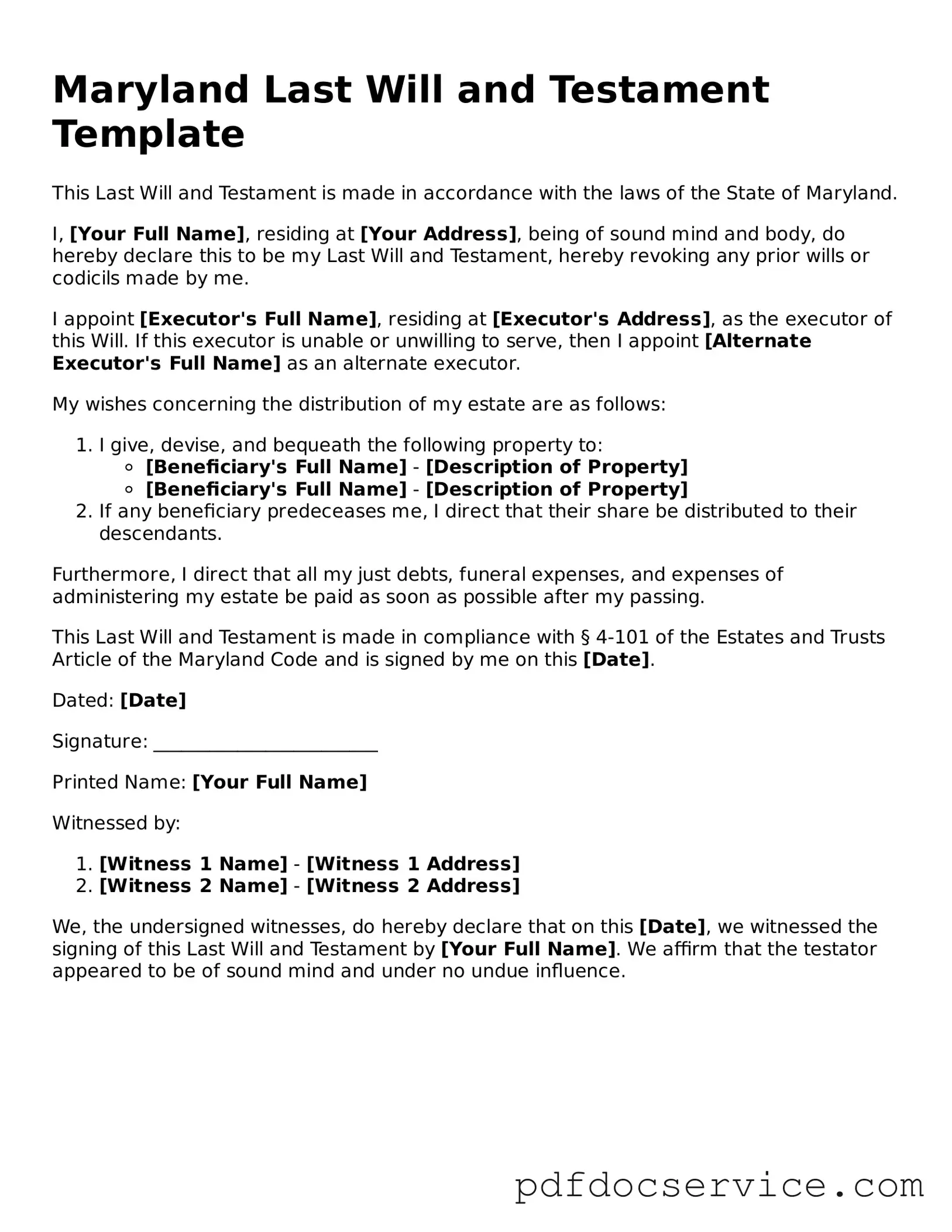What is a Last Will and Testament?
A Last Will and Testament is a legal document that outlines how a person's assets and affairs should be handled after their death. It allows individuals to specify who will inherit their property, name guardians for minor children, and appoint an executor to manage the estate. This document ensures that your wishes are honored and provides clarity to your loved ones during a difficult time.
Do I need a lawyer to create a Last Will and Testament in Maryland?
While it's not legally required to have a lawyer draft your will in Maryland, consulting one can be beneficial. A lawyer can help ensure that your will complies with state laws and that your intentions are clearly expressed. If your estate is complex or if you have specific wishes, professional guidance can help avoid potential disputes or issues down the line.
What are the requirements for a valid will in Maryland?
To create a valid will in Maryland, you must meet the following criteria:
-
You must be at least 18 years old.
-
You must be of sound mind, meaning you understand the nature of making a will and the consequences of your decisions.
-
Your will must be in writing, either typed or handwritten.
-
The will must be signed by you or by someone else in your presence and at your direction.
-
At least two witnesses must sign the will, confirming that they witnessed you signing it or that you acknowledged your signature in their presence.
Can I change my will once it’s created?
Yes, you can change your will at any time while you are alive and of sound mind. This is often done through a document called a codicil, which amends specific parts of your existing will. Alternatively, you can create an entirely new will that revokes the previous one. Just be sure to follow the same formalities to ensure that your new will is valid.
What happens if I die without a will in Maryland?
If you pass away without a will, you are considered to have died "intestate." In this case, Maryland law will determine how your assets are distributed. Typically, your estate will be divided among your closest relatives, which may not align with your wishes. To avoid this situation, it's advisable to create a will that clearly outlines your intentions.
How can I ensure my will is kept safe and accessible?
Keeping your will in a safe yet accessible place is crucial. Consider these options:
-
Store it in a fireproof safe at home.
-
Keep a copy with a trusted family member or friend.
-
File it with your attorney or a local probate court, if allowed.
Additionally, inform your loved ones where your will is located so they can easily find it when needed.
What should I do if I want to contest a will?
If you believe a will is invalid or does not reflect the true intentions of the deceased, you may have grounds to contest it. Common reasons for contesting a will include lack of capacity, undue influence, or improper execution. It's advisable to consult with an attorney experienced in estate law to discuss your concerns and explore your options.

